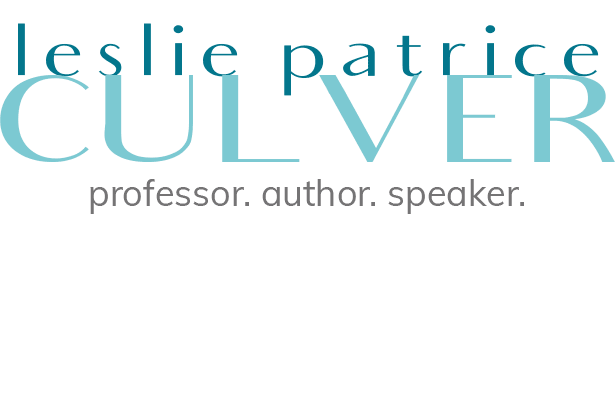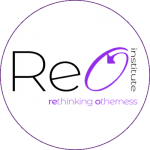The journey to my authentic voice has been filled with fear and insecurity, as well as liberation and joy. I never dreamed of being a law professor; from highschool I planned on the FBI, but God (and the events of 9/11) brought about other plans. It was the urging of a college advisor that brought me to law school, and I then began practicing law. Eventually, I left practice, my soul quite wounded, and entered the legal academy. Since my first day in the classroom, and now twelve years later, I found my calling. As a professor of legal writing, I believe writing is power, writing is liberation, writing changes lives. It has changed mine. I found my voice through writing and I cannot imagine imparting a greater skill—a gift—to my students. The most freeing journey my own writing took me on was gaining more awareness and confidence in the multiple layers of my identity, a passion that has spilled over into my scholarship. My legal practice was a pivotal moment in my journey—one for which, beyond the books, I was unprepared to navigate as a black woman in a predominantly white legal profession. My experience in practice—not lack of friends, but lack of tools to process and understand the ways in which my experiences seemed to differ from that of my peers—is largely what compelled me to begin ReO institute. And now, by God’s grace, I use my scholarship and speaking platform intentionally to understand how to bring unity and healing in a space rife with ethnic divide. And so, I continue to move guided by Him and supported by my amazing husband, and two precious girls, who have sustained me along this ride. My next great adventure is at the University of Utah S.J. Quinney College of Law. “Honor all people. Love the brotherhood. Fear God. Honor the King (1 Pet. 2:17)
Our family started a creative website design business called Sonlight Designs, and serve as Brand Partners with Young Living Essential Oils, calling our business Diffused Sonlight! (Yes, there’s a theme here…)” icon=”et-camera”][d_ft_link_card title=”Diffused Sonlight” desc=”Executive Brand Partner with Young Living Essential Oils” button_title=”Learn more” image=”240121″ link=”url:https%3A%2F%2Fdiffusedsonlight.com|title:Diffused%20Sonlight|target:%20_blank|”]
This article, forthcoming in Nevada Law Journal (2020), uses the musical Wicked—the untold story of the Witches of Oz—as a contemporary framework to juxtapose identity performance with legal writing. The article casts IRAC as a rigid and objective approach to legal analysis, as compared to more holistic Analytical Frameworks, which offer students a transformative process of legal analysis, and further their own authentic identity as lawyers.
Read more!
https://bit.ly/31IuvSE” author=”” company=”” image=”4926″ css_class=”reading”][/d_animation_wrapper]
This book project is a continued conversation from earlier work titled Conscious Identity Performance. Designed as a structured vignette within an autoethnography, the book, based on extensive qualitative research of lawyers across the country, specifically explores the blind spots of white male lawyers through the communicative practices of lawyers across marginalized lines. This project is one of reconstruction, highlighting behavioral themes that simply maintain the status quo, with the goal to shift the gaze for the white male beyond their veil toward the oft invisible Other, inviting him in as a listener in order to recognize power, confront privilege, and be equipped to partner as an agent of change toward equality and inclusion.” author=”” company=”” image=”5853″ css_class=”hidden-voices-text”][/d_animation_wrapper]
This essay is a pedagogical companion piece to (Un)Wicked Analytical Frameworks and the Cry for Identity. The Rhetorical Profile is my named analytical framework that, in view of identity development in students, pushes against rigid and formulaic paradigms for structuring legal analysis. The Rhetorical Profile is best understood as a holistic platform to situate and give a name to the already existing questions student should consider at each stage of an analysis to engage consciously and confidently in critical legal analytical thinking.” author=”” company=”” image=”5489″][/d_animation_wrapper]
What I'm Reading...If You Care
Toni Morrison, The Source of Self-Regard (2019)
Intercultural Alliances: Critical Transformation (Mary Jane Collier ed. 2002)
Deanna L. Fassett & John t. Warren, Critical Communication Pedagogy (2007)
James A. Autry, The Servant Leader (2001)
Essential Oil Desk Reference Book (8th ed. 2019)
Ruth King, Mindful of Race (2018)
Just Thinking Podcast (w/ Darrel. Harrison & Virgil Walker)
Power/Knowledge: Selected Interviews & Other Writings (1972-1977) By Michael Foucault 98 (Colin Gordan, ed. 1980).
Foucault, The Subject and Power, 8 Critical Inquiry 777, 794 (1982).
Sandra L. Pensoneau-Conway, Understanding Identity Through Dialogue: Paulo Freire and Intercultural Communication Pedagogy, in Identity Research and Communication: Intercultural Reflections and Future Directions 35 (Nilanjana Bardhan & Mark P. Orbe, eds 2014).
Benjamin J. Broome & Mary Jane Collier, Culture, Communication, and Peacebuilding: A Reflexive Multi- Dimensional Contextual Framework, 5 J. Int’l & Intercultural Comm. 245, 253 (2012)
Shilpi Bhattacharya, The Desire for Whiteness: Can Law and Economics Explain It, 2 Colum. J. Race & L. 117 (2012)
Suzanne Rowe, The Elephant in the Room: Responding to Racially Charged Words, 15 Legal Comm. & Rhetoric: JAWLD 263 (2018)
Bret Rappaport, Tapping the Human Adaptive Origins of Storytelling by Requiring Legal Writing Students to Read a Novel in Order to Appreciate How Character, Setting, Plot, Theme, and Tone (CSPTT) are as Important as IRAC, 25 T. M. Cooley L. Rev. 267 (2008).


